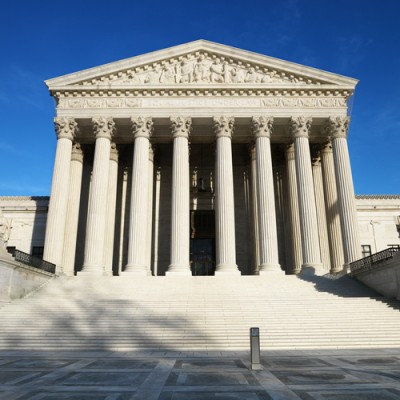Justices appear sympathetic to Missouri church seeking playground improvements

At oral arguments Wednesday, justices of the U.S. Supreme Court appeared sympathetic to a church’s arguments about its eligibility for a state playground improvement program, the Washington Post reported Wednesday.
Trinity Lutheran Church in Columbia, Missouri, applied for a state-funded grant that funds rubberized playground coverings made from scrap tires. As the April issue of the ABA Journal noted, the church scored high on a set of neutral criteria. Nonetheless, the state of Missouri turned down the application, citing a provision in the state Constitution saying “no money shall ever be taken from the public treasury, directly or indirectly, in aid of any church, sect, or denomination of religion.”
Attorney James Layton of Jefferson City, Missouri, representing the state, argued that this means Missouri doesn’t have to fund religion. The state argued in its brief to the court that Trinity Lutheran congregants are still free to practice their religion; they just won’t be able to do it with state funding.
But the justices appeared sympathetic to the church Wednesday, the Post said.
“You’re depriving one set of actors from being able to compete in the same way everybody else can compete, because of their religious identification,” Justice Elena Kagan told Layton.
Justice Samuel Alito mentioned several federal programs that fund safety programs for religious institutions. Justice Stephen Breyer said that Missouri’s policy, if taken to a logical extreme, could forbid local emergency responders from protecting religious institutions.
But not every justice was on board. Justice Sonia Sotomayor echoed Layton, saying the Missouri constitutional provision didn’t interfere with the right to free exercise of religion, but rather stepped aside from involvement in religion.
Trinity Lutheran ranked fifth out of 44 applicants for the scrap tire program in 2012, the ABA Journal reported this month. The state funded 14 of the applicants, but not Trinity Lutheran. The church sued and lost in federal district court, and again 2-1 before a three-judge panel of the 8th U.S. Circuit Court of Appeals. The district court’s ruling was based in part on a 2004 Supreme Court decision in Locke v. Davey, in which the state of Washington was permitted to deny scholarship funding to a student of “devotional theology.”
But the purpose of the rubber playground covering is secular, the Post noted; rubberized coverings are easier on the knees of preschoolers than the pea gravel the church was trying to replace.
The case got a twist this month when Missouri Gov. Eric Greitens announced that he would end the policy against grants to religious institutions. Both sides told the Supreme Court that his decision doesn’t moot the case, since the issue could arise again in the future.



